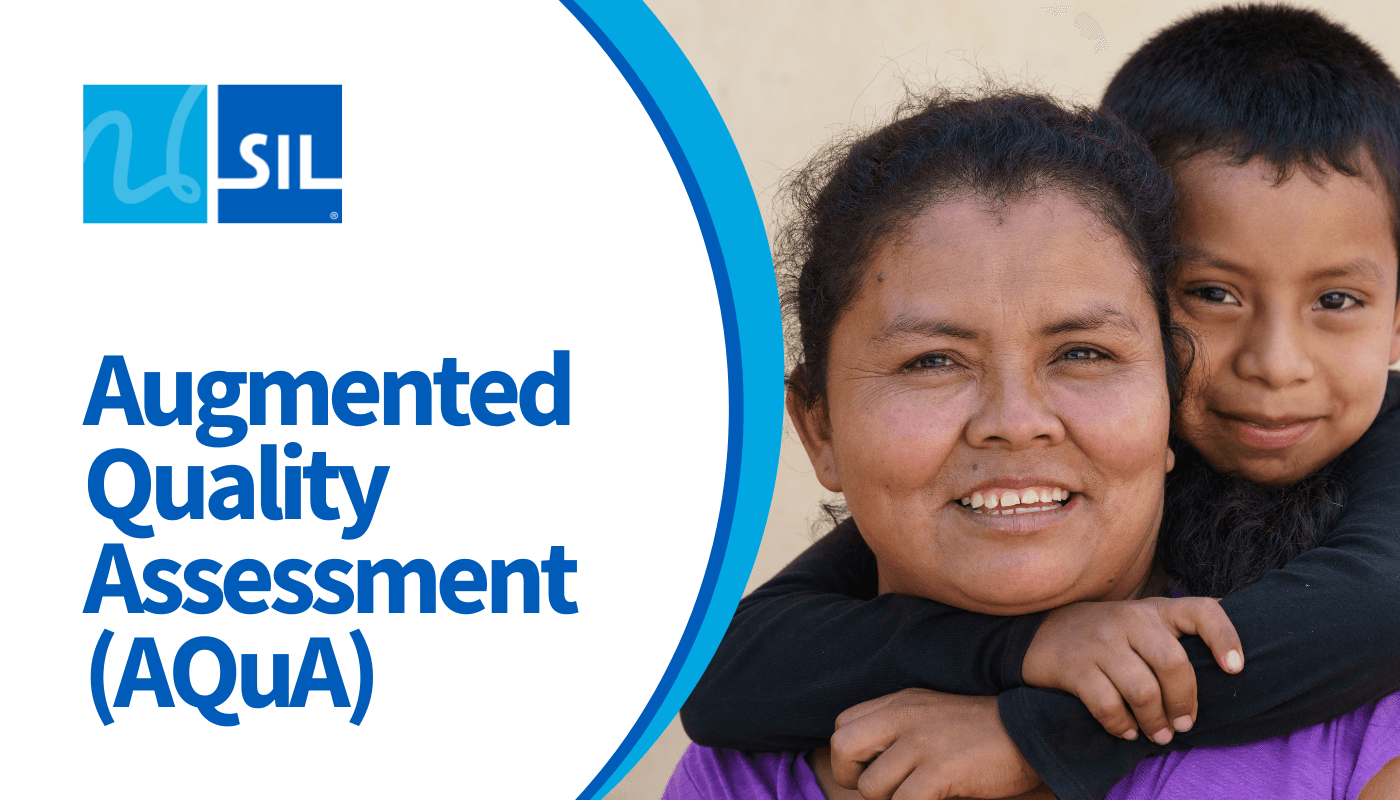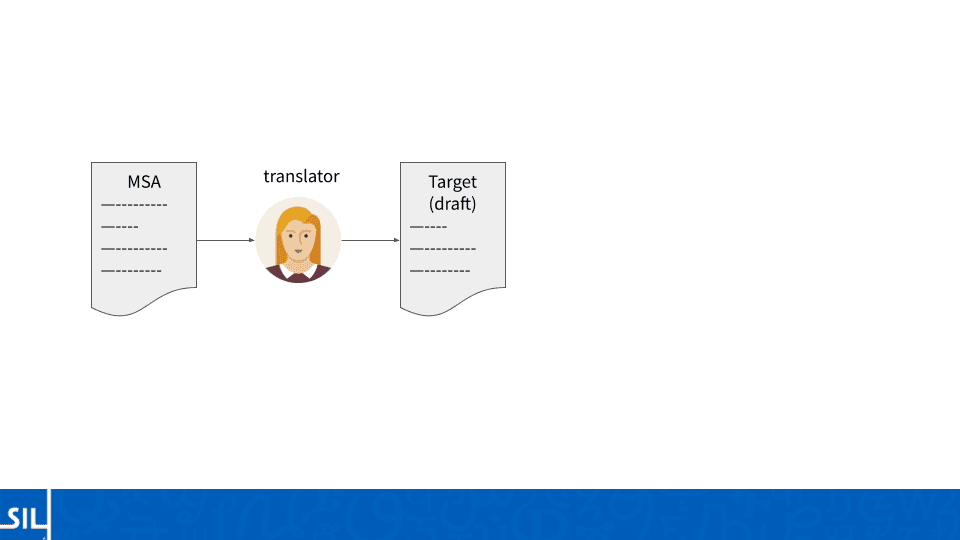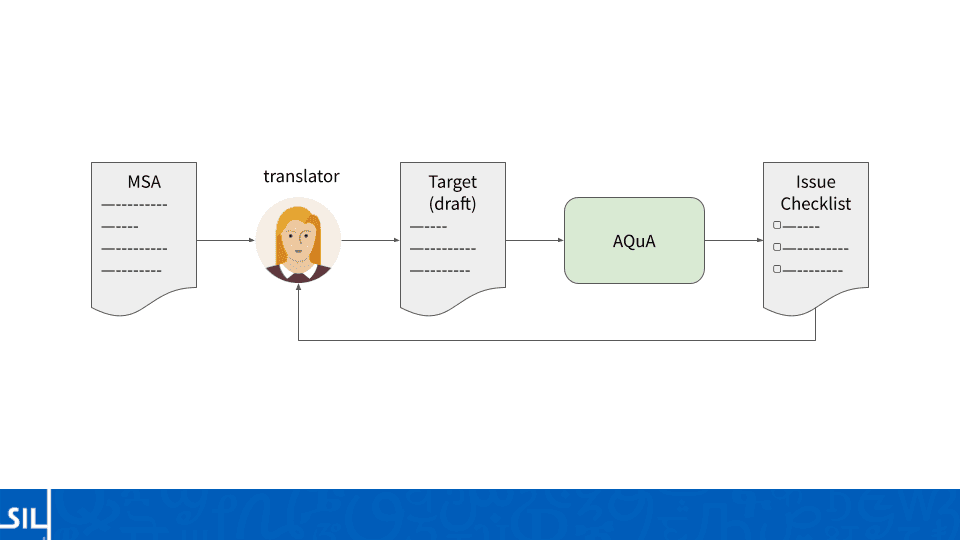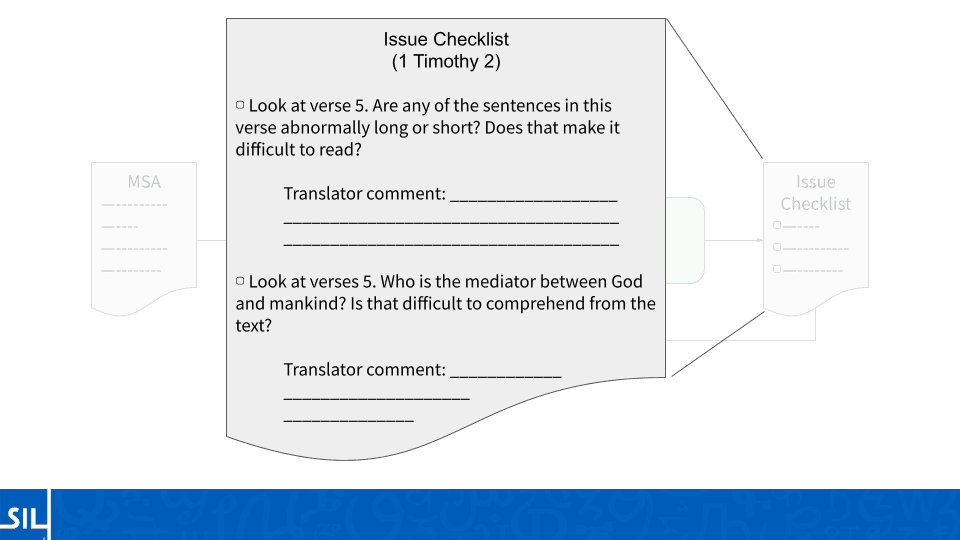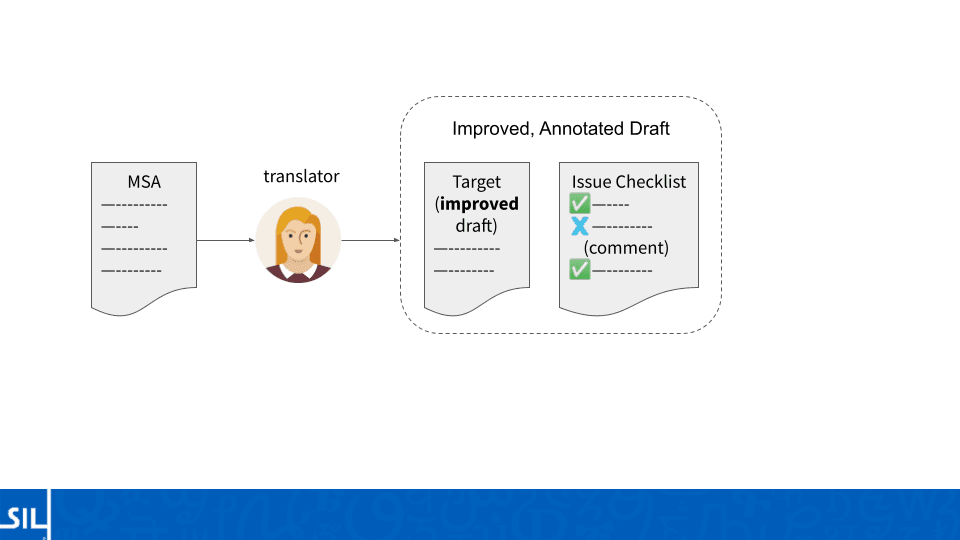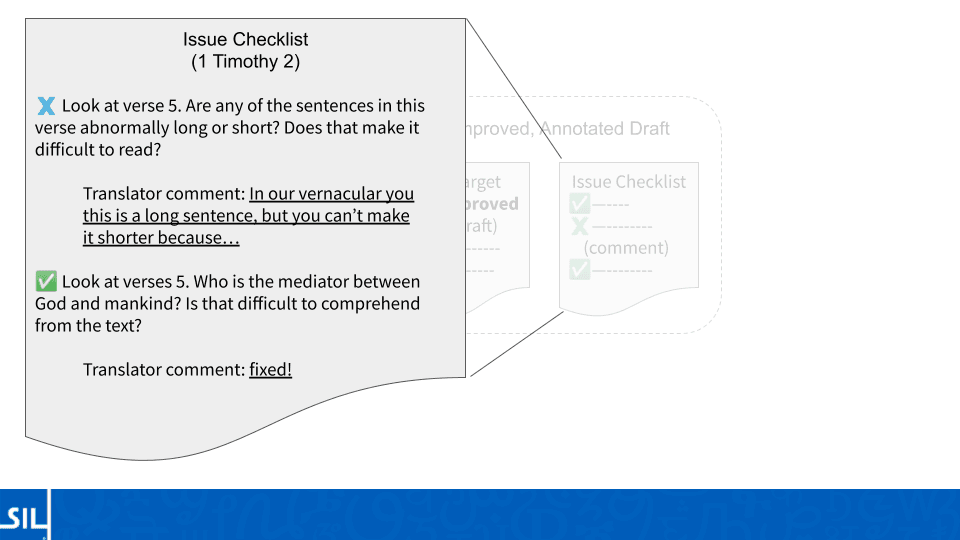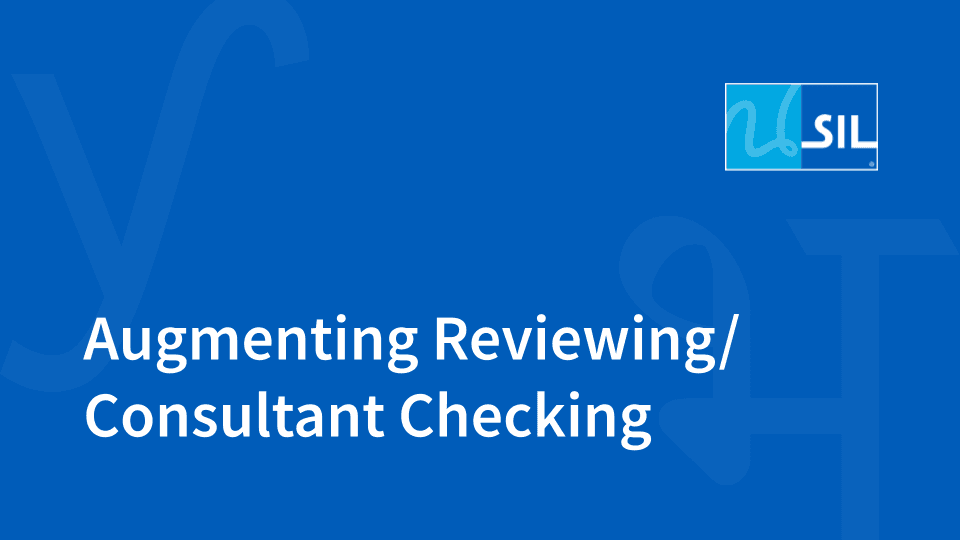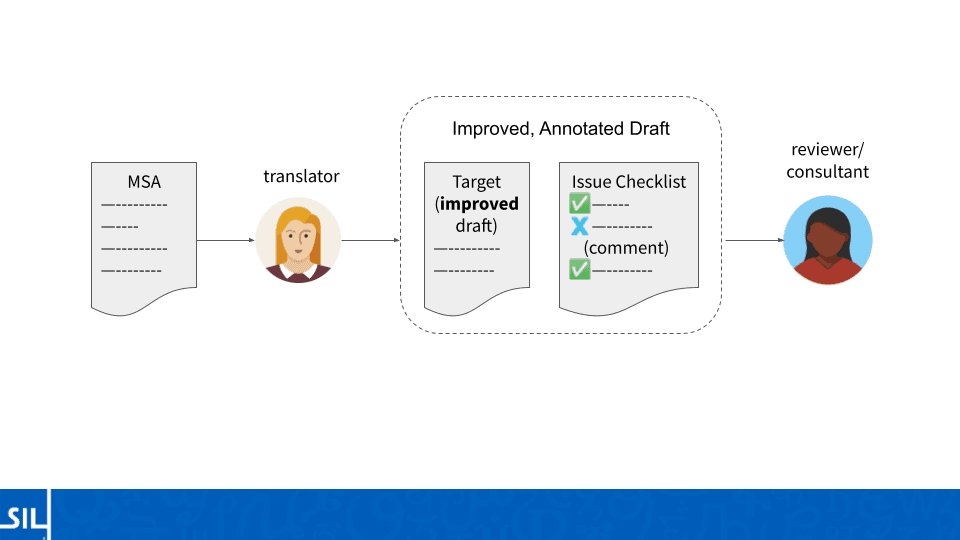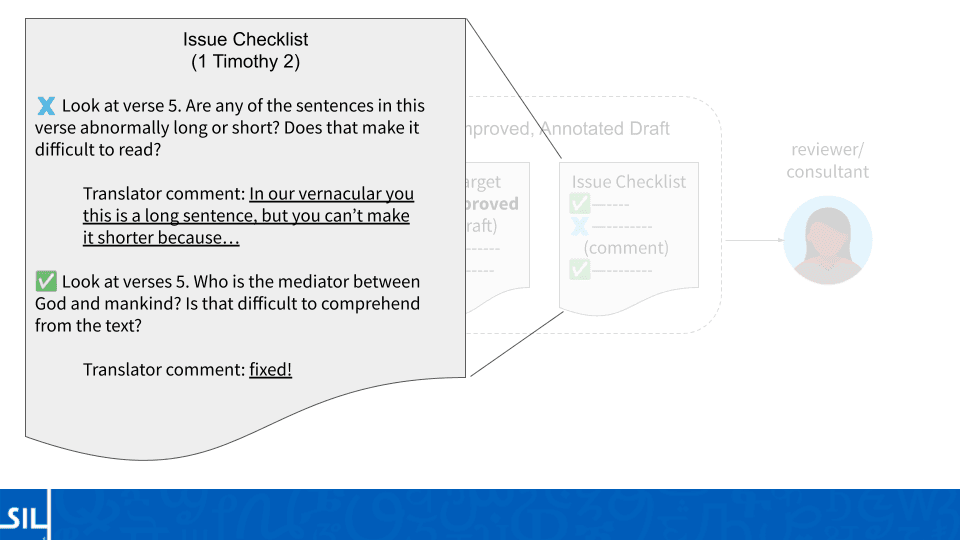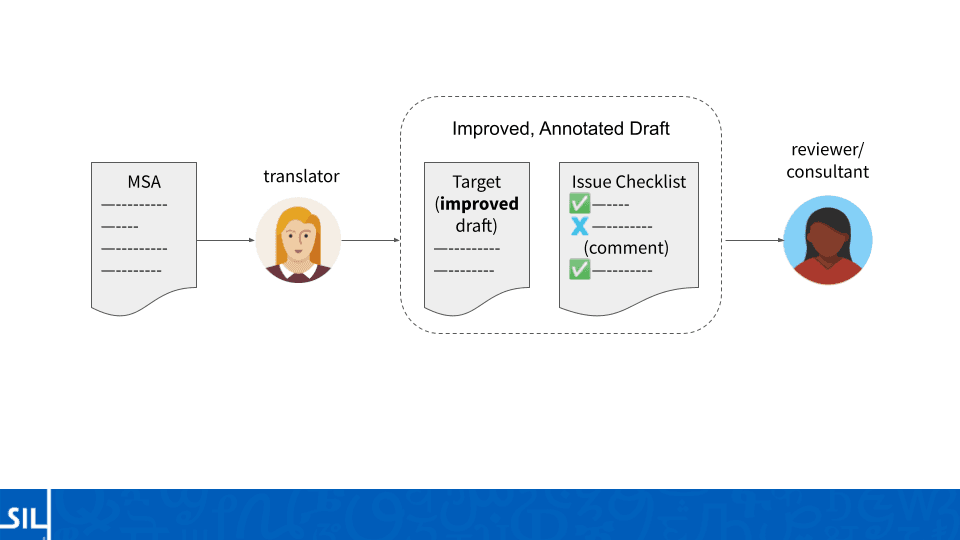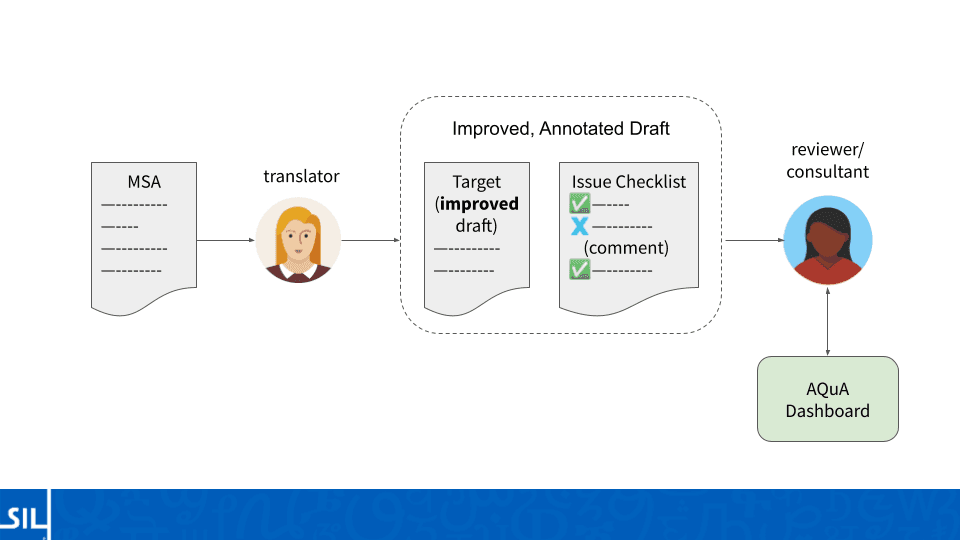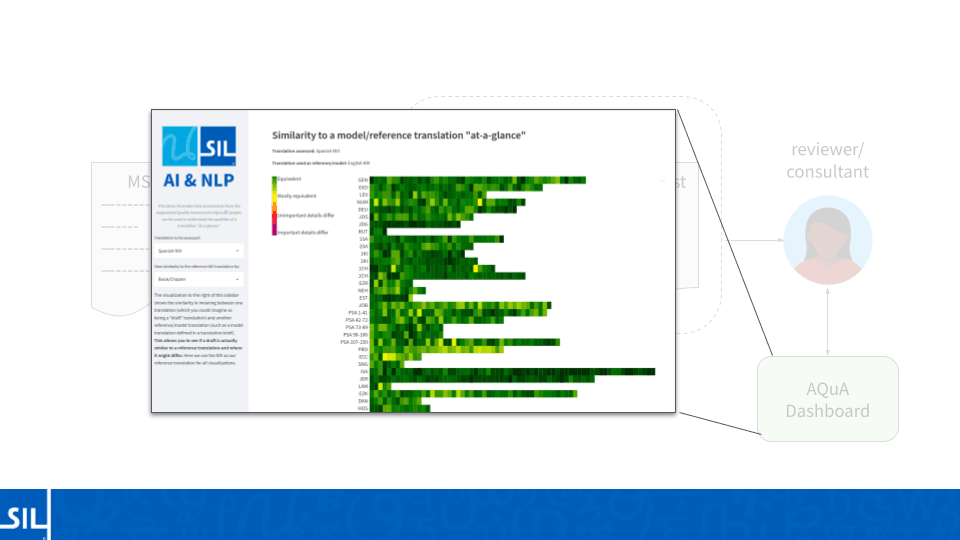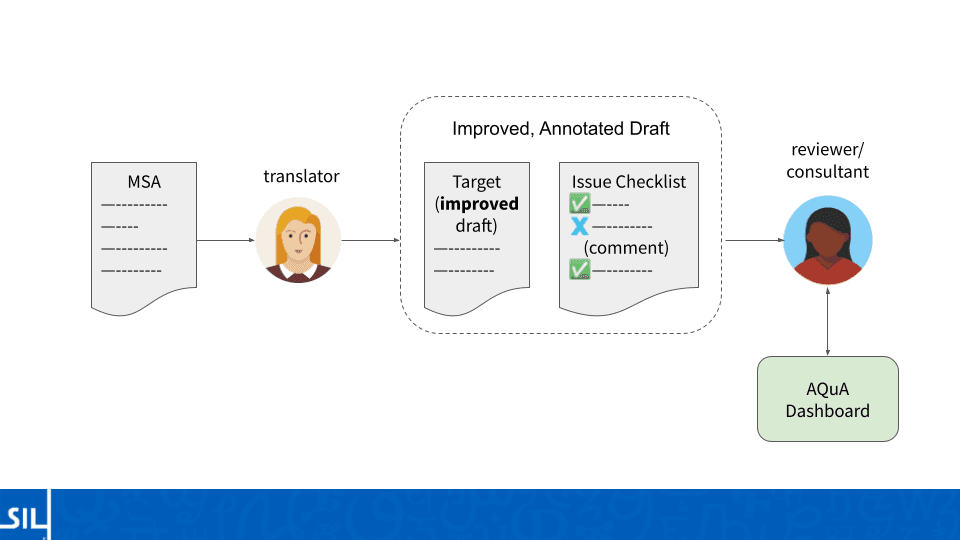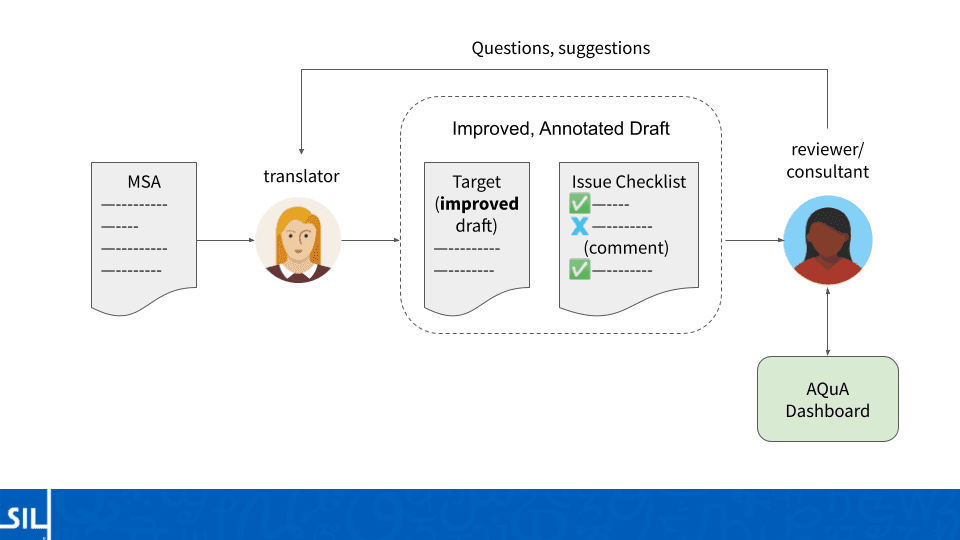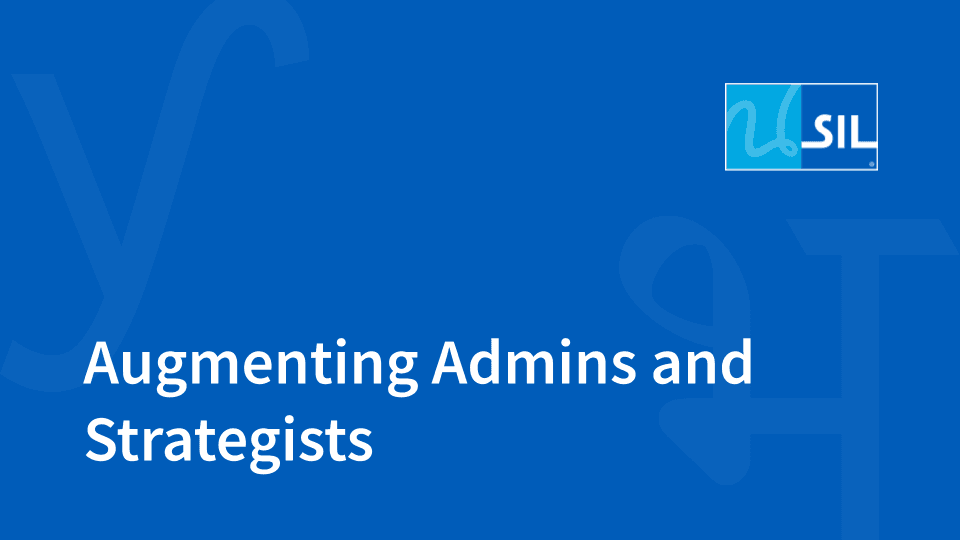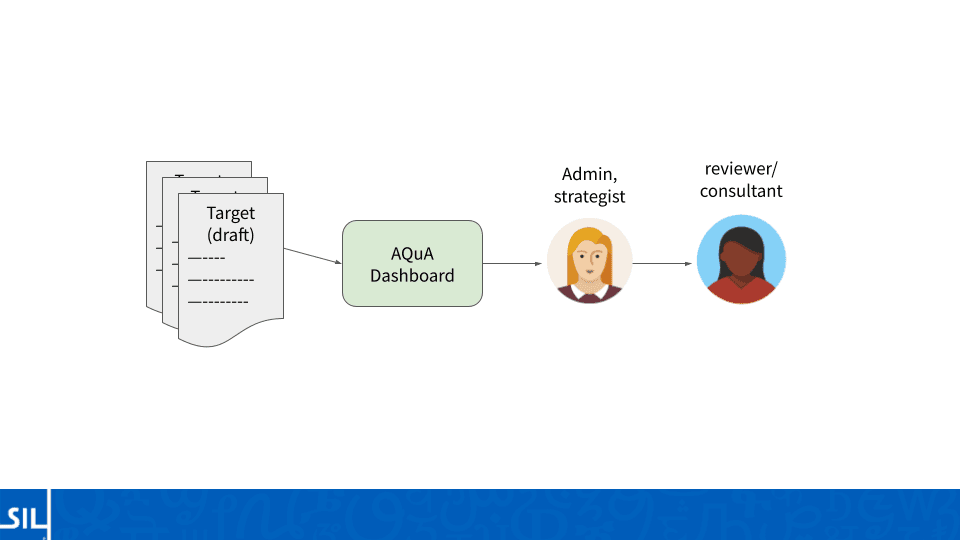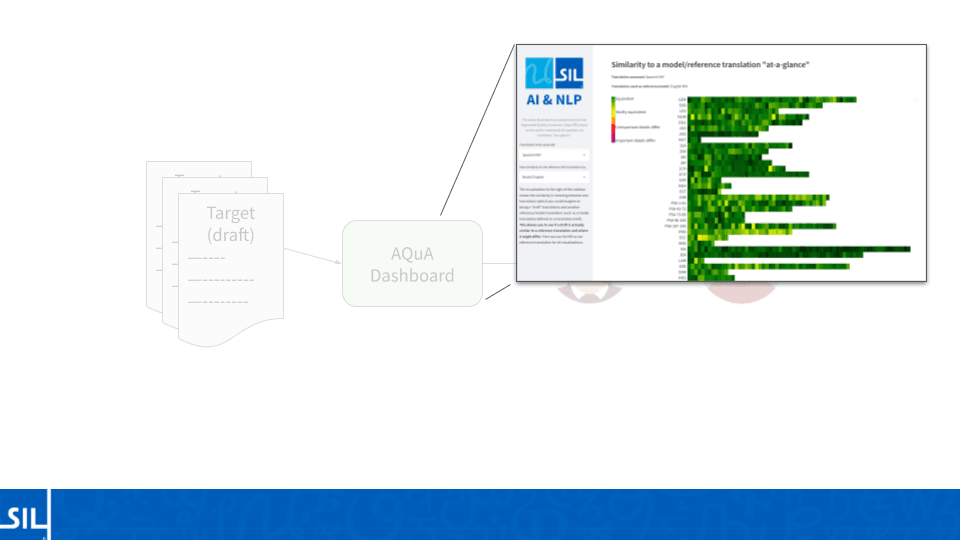Augmented Quality Assessment (AQuA)
AQuA is an AI copilot for Bible translation quality assessment.
AQuA is a copilot tool developed by SIL Global that seeks to develop capacity and increase the thoroughness of translation quality assurance. It harnesses artificial intelligence (AI) techniques, assisting translation teams in assessing multiple facets of translation quality by enhancing and complementing their quality assurance work. After running several quality assessment algorithms on a Bible translation, AQuA provides different visualizations showcasing different properties of the text. Translation teams can then review these visualizations to help them see their translation in a new light.
